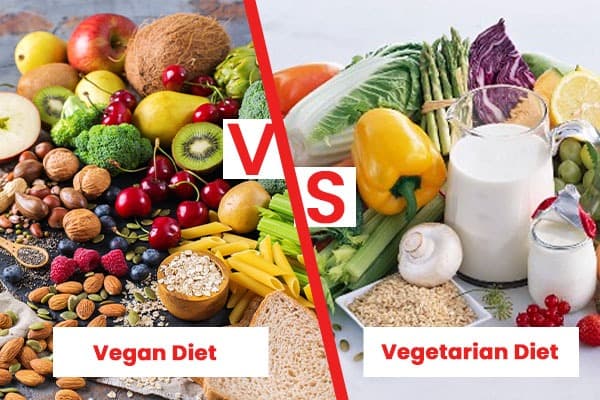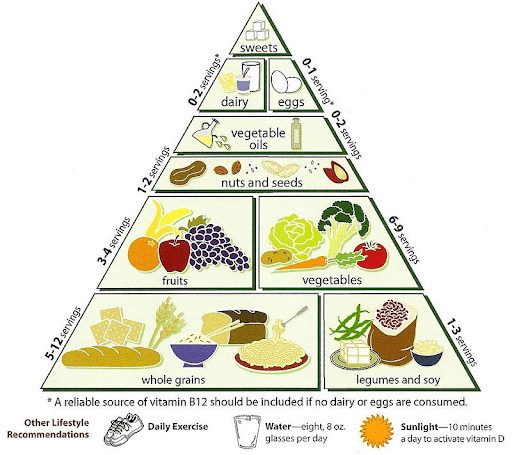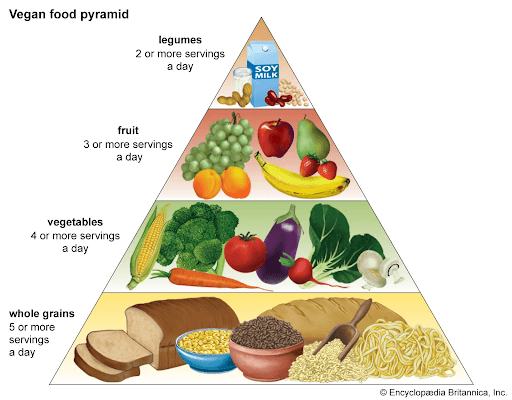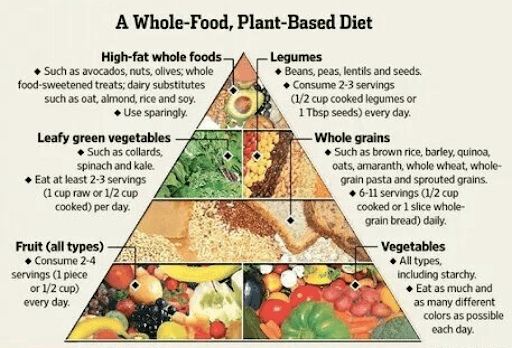Whole food plant-based vs Vegan vs Vegetarian: What are the differences?
While WFPB (whole food plant-based), vegan and vegetarian diets all emphasize greens to varying degrees, there are some key differences between these dietary approaches.

While WFPB (whole food plant-based), vegan and vegetarian diets all emphasize greens to varying degrees, there are some key differences between these dietary approaches.

Vegetarian
Vegetarian diets exclude meat but may include eggs, dairy and honey (ingredients which are produced by animals). Some vegetarians avoid all animal products except fish. As a pasta lover myself, Aglio Olio (a famous pasta dish usually fried with olive oil and garlic) and Cacio e Pepe (a dish not widely known outside of Italy consisting of cheese and black pepper) can be considered vegetarian. A famous health conscious example of a vegetarian diet is the Mediterranean diet, consisting of leafy greens, olive oil, and Omega-3 rich fish.

Vegan
Vegans completely eliminate all animal products, including eggs, dairy, honey and animal-derived ingredients from their diets and lifestyle choices. The reasons are primarily ethical as many in the movement view killing animals to be immoral. However, many health experts have noted and emphasized the benefits plant food products have over animal products, such as reducing inflammation and managing chronic illnesses.

WFPB (Whole food plant-based)
Whole food diets emphasize on staying away from processed foods that contain preservatives and chemicals that cause health complications. Most plant-based diets are fully vegan while others include animal products in small amounts. Savor emphasizes a vegan leaning plant-based diet, with the near removal of all animal products in our food for both health and ethical reasons.
Summary
So to clarify, Vegetarians eat mostly plant foods, allowing for the occasional animal products like fish, cheese and honey. Vegans completely avoid animal products in both food and lifestyle choices. Whole food plant-based diets emphasize whole plant foods but allow for occasional small servings of animal produce like cream or honey. What all 3 have in common is that they are all incredibly healthy and sustainable for the environment!
In conclusion, whether you're following a vegetarian, vegan, or whole food plant-based diet, each offers its own unique approach to nourishing the body while being mindful of the planet. These dietary choices emphasize plant foods, leading to numerous health benefits such as reducing inflammation and supporting heart health. Reminder that there is no judgment on which of the 3 you decide to follow as you embark on your health transformation journey!
Topic | Vegetarian | Vegan | Whole Food Plant-Based (WFPB) |
Animal Products | Excludes meat, but may include eggs, dairy, honey, and sometimes fish | Excludes all animal products, including eggs, dairy, honey, and any animal-derived ingredients | Typically excludes or minimizes animal products; may allow small amounts depending on personal preference |
Processed Foods | May include processed and refined foods | Generally allowed, though many vegans avoid processed foods for health reasons | Avoids processed foods, emphasizing whole, natural foods without preservatives or chemicals |
Motivation | Health, ethics, environmental concerns | Primarily ethical reasons, with added health and environmental motivations | Health-driven with ethical considerations; focuses on reducing inflammation and chronic illness risks |
Typical Foods | Vegetables, fruits, grains, legumes, dairy, eggs, honey, sometimes fish | Vegetables, fruits, grains, legumes, nuts, seeds | Vegetables, fruits, legumes, grains, nuts, and seeds, with minimal or no animal products |
Example Diet | Mediterranean diet (includes leafy greens, olive oil, and fish rich in Omega-3) | A vegan diet with no animal-derived ingredients, such as a lentil stew with vegetables | Whole food vegan or minimally processed diet, such as a vegetable stir-fry with brown rice and beans |
Health Benefits | Heart health, reduced risk of certain chronic diseases | Reduced inflammation, better chronic illness management, supports ethical animal treatment | Emphasis on whole foods supports better weight management, reduced disease risk, and lowered inflammation |
Link to sources:
https://www.forksoverknives.com/wellness/plant-based-diet-vs-vegan-diet-whats-the-difference/
https://www.healthline.com/nutrition/plant-based-diet-vs-vegan
https://www.eatingwell.com/article/8026238/plant-based-vs-vegan/